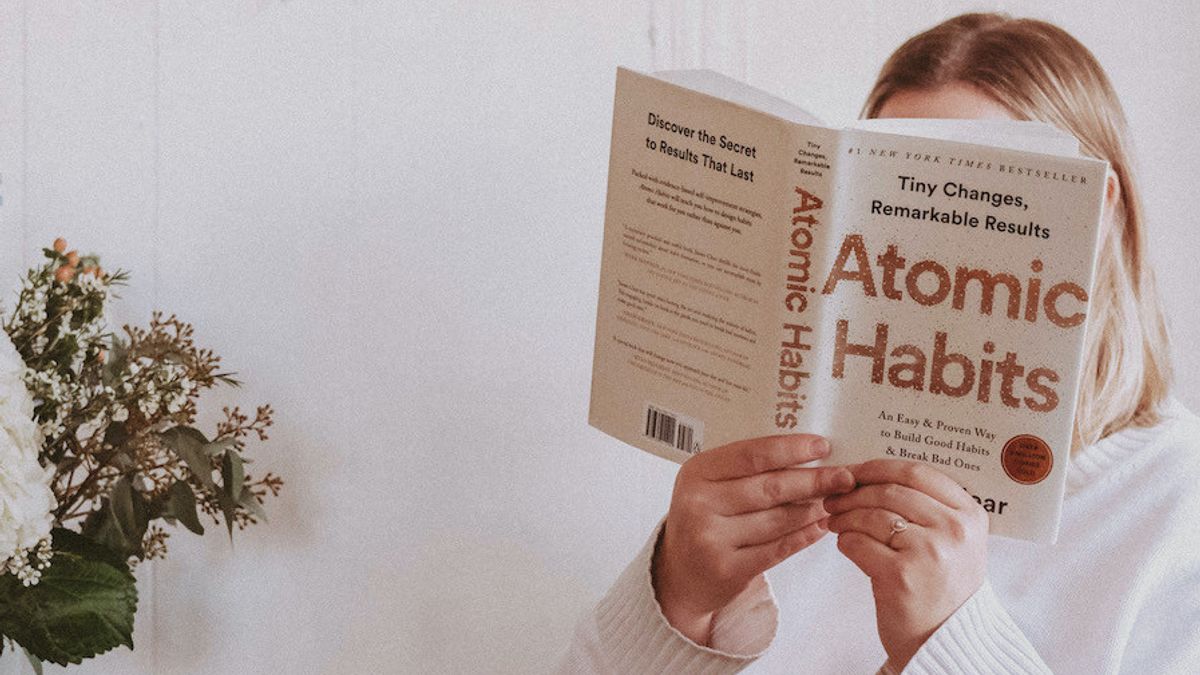JAKARTA - What is your resolution next year? This question often comes out at the end of the year. Resolution contains hope and enthusiasm to become a better, useful, and successful person in achieving goals.
Everyone can easily determine their targets. However, they are often negligent in their efforts to make it happen. Basic problems are always related to the system's weaknesses and how a person is able to change the pattern of habits in order to achieve this resolution.
The story of the man from Hungary,nauguration of Polgar, as quoted from the book "Atomic Habits" James Clear's work can at least provide an overview of how he and his family make dreams come true.
Polgar is a person who has strong beliefs about the concept of hard work and he completely rejects the idea of congenital talent. For him, a genius is not born, but is the result of education and training. With consistency in training and consistency in developing good habits, a child can become a genius in any field.
Polgar mengajak sang istri, Klara melakukan eksperian terhadap ketiga anaknya untuk menguji pemikirannya tersebut. Klara yang berkesefesi sebagai guru juga mempercaya dengan petunjuk yang tepat, siapapun dapat meningkatkan kepentingan mereka.
He made plans to raise his children to become chess champions, a rare dream in Hungary in the 1970s. Polgar started first from home. He fills the house with chess accessories and pictures of famous chess players, including chess play books as his son's reading book.
This is a form of clue to start a new habit. Guidelines, according to Clear, must stand out, not be vague or hidden. The more vague it is, the more neglected the clues will be. Because, in the early stages of life, a person prefers to imitate what is around him.
Then, Polgar and Klara also compiled a training schedule, until they regularly participated in their children's chess tournaments. Their lives seem to be held for chess.
The result was amazing. Susan, the oldest child, started playing chess when she was 6 years old. Only 6 months, he managed to beat the adult game.
Sofia, second child, even greater. At the age of 14 he became world champion and a few years later became agrandmaster. As for the youngest, Judit, the best among the three.
At the age of 5, he was able to beat his father. At the age of 12, he became the youngest player in the world's list of the one hundred best chess players. At the age of 15, he became the youngest giantster of all time, younger than Bobby Fischer, the previous record holder. For 27 years, Judit became the world's number one female chess player.
In the interview, the three brothers described their childhood as a fun but not burdensome time. They love to play chess, "wrote James Clear in the book "Atomic Habits.
The three daughters of Polgar grew up in a culture that prioritized chess, received praise and was rewarded with achievement. In their world, obsession with chess is considered normal.
"The culture where we live determines which behaviors are interesting and appropriate for us," said Clear.
The three Polgar children are strong evidence of social influence on a person's behavior. They practice chess for hours every day and keep doing it for decades. They can maintain these habits and behaviors because they are in the right and appropriate environmental culture.
Through this culture, they can easily overcome boredom, which according to Clear is the biggest threat to fermentation.
At first, things that are routinely done over and over again can indeed develop efficacy, speed, and skills. However, when it becomes a routine, a person is usually less sensitive, tends to stop paying attention to small mistakes.
When you are able to produce quite good autopilot, you stop thinking about how to do it better. You think you're constantly getting better because you're getting more experienced. In reality, you're just strengthening the current habits, not making them better," said Clear.
Of course, to maximize potential and achieve higher performance, it requires a more diverse approach. Clear emphasized, it is impossible to repeat the same thing, then hope to be special. Don't be complacent.
Make a system for reflection and review for long-term improvements over all habits. This allows you to be aware of mistakes and help take into account possible ways to improve," said Clear.
Without reflection, we can find excuses, make rationalizations, and lie to ourselves. We don't have a process to determine whether our performance goes up or down compared to yesterday," Clear added.
Every December, Clear makes annual reviews to look at his work over the past year. He assessed his habits by calculating how many articles were published, how many sports were done, and so on.
Then, I reflect on progress or setbacks by answering three questions: What went well this year? What didn't go so well this year? And what did I learn from it?
Six months later, when summer arrived, Clear continued making integrity reports that helped him realize his mistakes and motivated him to get back on track.
I use it as an opportunity to revive my basic values and consider whether I have lived in the right way. This is when I reflect on my identity and how I can try to be the type of person I want to be, "he said.
A Chinese philosopher, Lao Tzu once said, "The habit of providing a number of benefits, but the negative side is that it can lock us in to the existing mindset and act, even though the world around it continues to change. Nothing is permanent. Life always changes. You need to periodically check again to see if old habits and beliefs still work for you."
Having no self-awareness is poison. Reflection and review are the cures," said Lao Tzu.
The English, Chinese, Japanese, Arabic, and French versions are automatically generated by the AI. So there may still be inaccuracies in translating, please always see Indonesian as our main language. (system supported by DigitalSiber.id)









